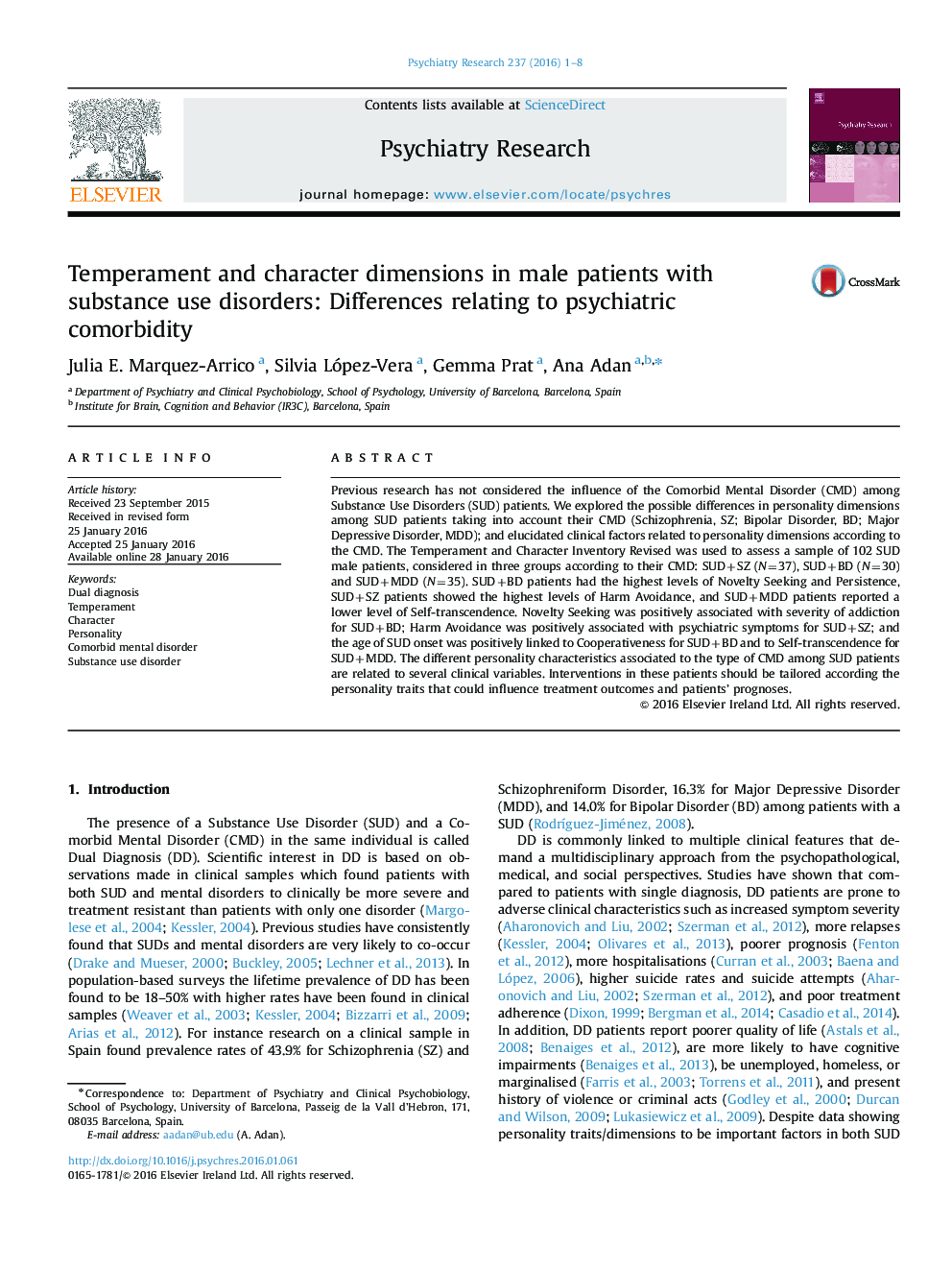| Article ID | Journal | Published Year | Pages | File Type |
|---|---|---|---|---|
| 333083 | Psychiatry Research | 2016 | 8 Pages |
•DD patients were characterized by high Novelty Seeking, especially with bipolar disorder.•Patients showed low Reward Dependence, Self-directedness and Cooperativeness.•SUD and co-occurring schizophrenia was related to higher Harm Avoidance and lower Persistence.•Severity of addiction was linked to a higher Novelty Seeking for SUD and bipolar disorder.•Higher Harm Avoidance was linked to major psychiatric symptoms in SUD and schizophrenia.
Previous research has not considered the influence of the Comorbid Mental Disorder (CMD) among Substance Use Disorders (SUD) patients. We explored the possible differences in personality dimensions among SUD patients taking into account their CMD (Schizophrenia, SZ; Bipolar Disorder, BD; Major Depressive Disorder, MDD); and elucidated clinical factors related to personality dimensions according to the CMD. The Temperament and Character Inventory Revised was used to assess a sample of 102 SUD male patients, considered in three groups according to their CMD: SUD+SZ (N=37), SUD+BD (N=30) and SUD+MDD (N=35). SUD+BD patients had the highest levels of Novelty Seeking and Persistence, SUD+SZ patients showed the highest levels of Harm Avoidance, and SUD+MDD patients reported a lower level of Self-transcendence. Novelty Seeking was positively associated with severity of addiction for SUD+BD; Harm Avoidance was positively associated with psychiatric symptoms for SUD+SZ; and the age of SUD onset was positively linked to Cooperativeness for SUD+BD and to Self-transcendence for SUD+MDD. The different personality characteristics associated to the type of CMD among SUD patients are related to several clinical variables. Interventions in these patients should be tailored according the personality traits that could influence treatment outcomes and patients’ prognoses.
